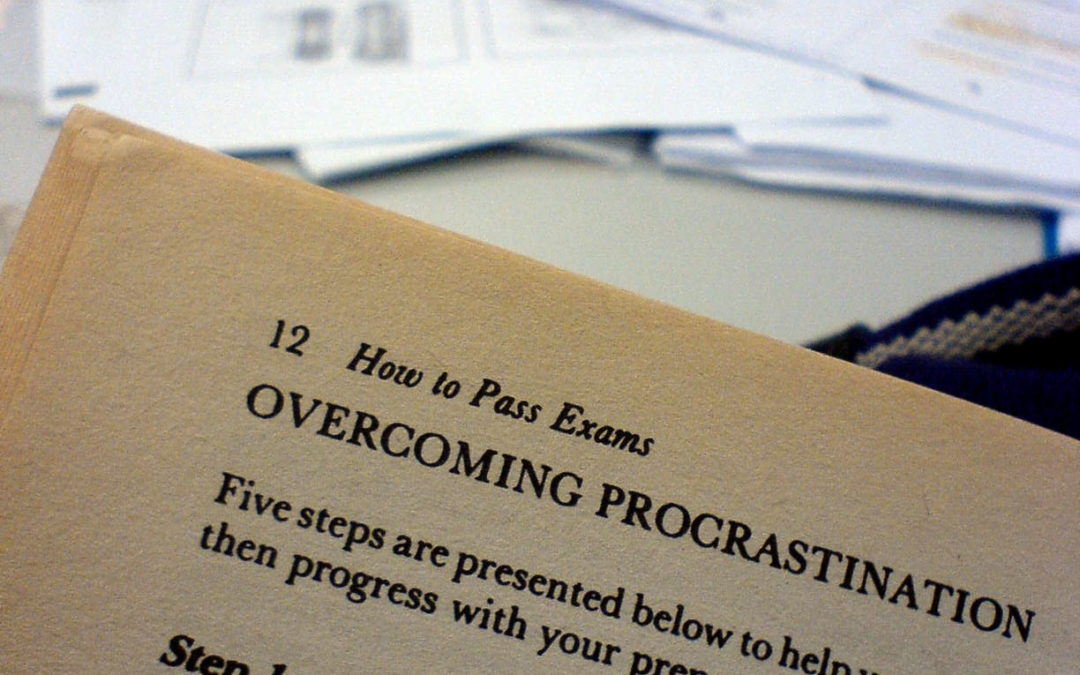A guest post by an anonymous student
I am a procrastinator. I do not know if it is because I work best under pressure or if I am simply used to working well under pressure, the ultimate result stays the same. This is an example of doing things the wrong way.The great thing about writing a thesis is that you have plenty of time and that there are set rules for everything. Three months is more than enough to write a bachelor’s thesis, especially when you consider that 25-30 pages is only a few pages longer than a regular term paper. If you write a little bit every day and talk to your examiner about your progress regularly, you are on the right track to getting a result you can be satisfied with.
I never talked to my examiner after signing up for my thesis, which was my first mistake. I had a title and a general idea but I was lacking both structure and a plan. While that was not a big problem initially – due to the fair amount of time allotted to writing the thesis – it quickly became one because time has the habit of flying, whether you work or not. This mistake could have easily been remedied. Had I made an appointment with my examiner at any time during this process, he certainly would have been able to help me, even if it was just by holding me accountable to a schedule. My piece of advice is: Make appointments with your examiner straight away so that you have soft deadlines by which a set amount of work has to be achieved. This would have saved my life.
When most of my allotted time had run out, I began to panic and I finally felt enough pressure to start doing something. I was lucky enough to have some experience with writing term papers. Before I could write anything, it was necessary to look at the literature at hand. Everyone works differently, and I like to collect quotes from sources which I believe to be relevant to my topic. So not only do I highlight relevant parts within the texts I read, I also create a document which simply serves as a collection of potentially useful quotes. Had I started this process at a reasonable time, I would not have had to deal with having to write my entire thesis in just a week. While I had laid the groundwork with the theory from secondary sources and a detailed analysis of my primary sources, none of this had been turned into a structured and cohesive paper.
At this point I ran into the problem that my initial ideas about the topic of the thesis were so vague, and the topic so big, that I did not know where to start. While that is a common problem that can be dealt with by discussing the question with your examiner, who will likely help you and advise you to look at one specific aspect that is worth analysing, I did not feel like I could approach my examiner and ask such a question with only days before the deadline.
In the end I pulled several all-nighters, culminating in a 27-hour writing session that lasted until the morning of the day of the deadline. I did not have time to proof-read most of what I had written. And even if I had somehow managed to do that, I do not believe I would have had the mental capacity to spot mistakes in that state. I had the thesis printed, handed it in and somehow, miraculously, I passed. Unsurprisingly, I did not receive the best grade and I am sure that I could have achieved a very good result, had I had an actual strategy to writing my thesis.
Long story short:
Don’t be me.
- Start early
- Hold yourself accountable, set mini-deadlines during the process with your examiner – or even just a friend who will tell you off for procrastinating
- Look at the relevant literature and figure out, with assistance if required, what specific aspect(s) you will look at in your paper
- Write a little bit every day
- When you finish your paper with time to spare, put it aside for a day or two, then reread, edit and finally have a friend proof-read it
I got lucky this time but I do not want to experience this again. Had I not written tons of papers before, there is no chance I would have been able to pass. That and a great portion of luck put me this position: Now I can tell you how not to approach writing a paper.



Many thanks to the anonymous author who shared their learning experiences here! Watch this space for an upcoming post on time management, both for specific assignments and throughout your studies!